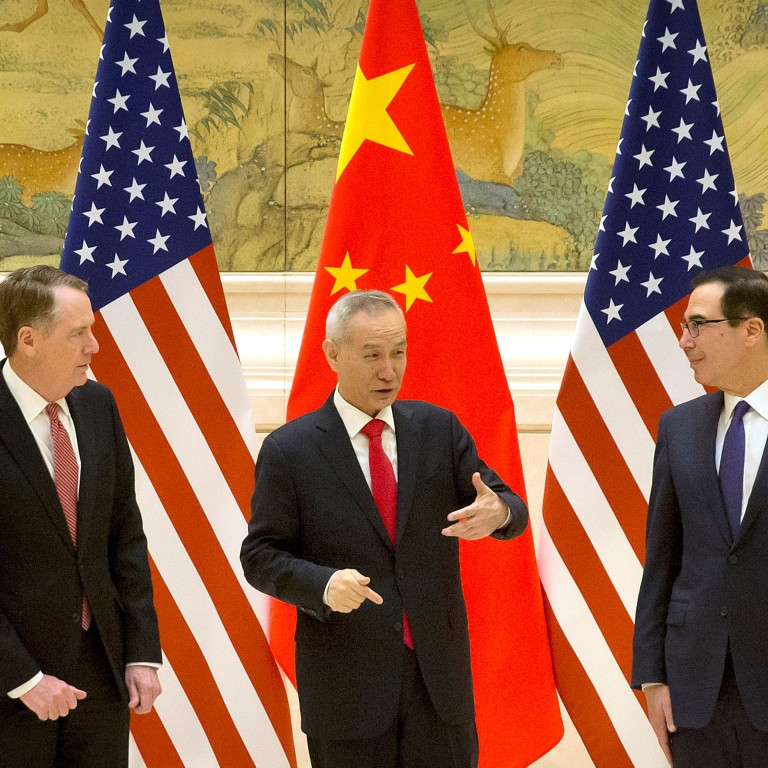
Donald Trump’s fair trade and intellectual property demands ‘good for China’, says economist Jin Keyu
- London School of Economics associate professor sees trade war as bringing necessary external pressure on Beijing to promote changes
- US trade representative Robert Lighthizer and US Treasury Secretary Steven Mnuchin were in Beijing this week for talks with Chinese Vice-Premier Liu He
US President Donald Trump’s demands for China to protect intellectual property rights and to conduct fairer trade practises are “actually good for China”, Jin Keyu, an associate professor of economics at the London School of Economics, said.
“What the US are demanding of China to do in terms of better protection of intellectual property and fairer trade practises are all good things for China in the long run,” said Jin in an interview this week.
“What President Trump is asking China to do is actually good for China, it’s a strategic gift.”
Jin, whose views on China are gaining influence on the international stage, said the trade war could create an external trigger for Beijing to accelerate its economic liberalisation process.
The daughter of Jin Liqun, the head of the Beijing-based Asian Infrastructure Investment Bank, compared the trade talks with the US to China’s negotiation to join the World Trade Organisation.
“We saw this in joining the WTO in 2001 where a lot of state enterprise reforms had long been delayed and were suddenly pushed through,” she added.
Jin was speaking in the same week when a team of US trade envoys, led by US Trade Representative Robert Lighthizer and US Treasury Secretary Steven Mnuchin, arrived in Beijing for the latest round of talks with their Chinese counterparts, headed by Vice-Premier Liu He, in an attempt to reach a trade pact that could put an end to a tariff war between the world’s two largest economies.
While Beijing and Washington both intend to reach an agreement, the two sides remained apart over key issues, including a US demand to ensure Beijing honours any commitments to equal market access and intellectual property protection, sources told the South China Morning Post.
The New York Times reported earlier this week that Beijing and Washington could not agree on how to verify China’s progress in delivering its promises.
Jin said that it is time for China to open its market wider to foreign businesses for the sake of its own consumers and future development.
“China is no longer in a state where you really need to heavily protect the domestic industries. In fact, the moment has arrived where they actually need a lot more competition,” Jin said.

